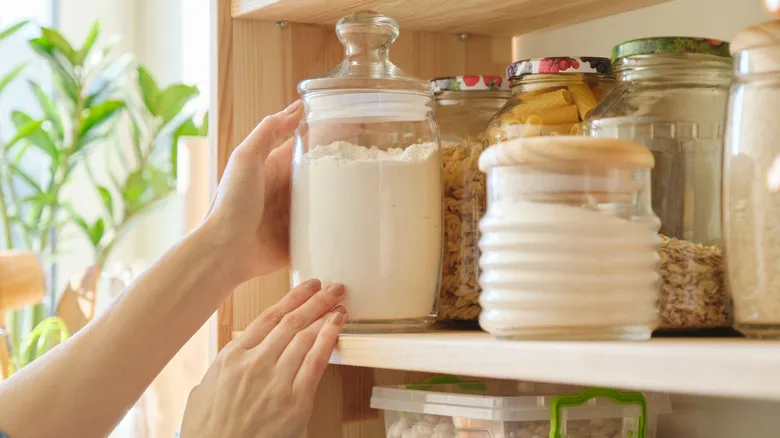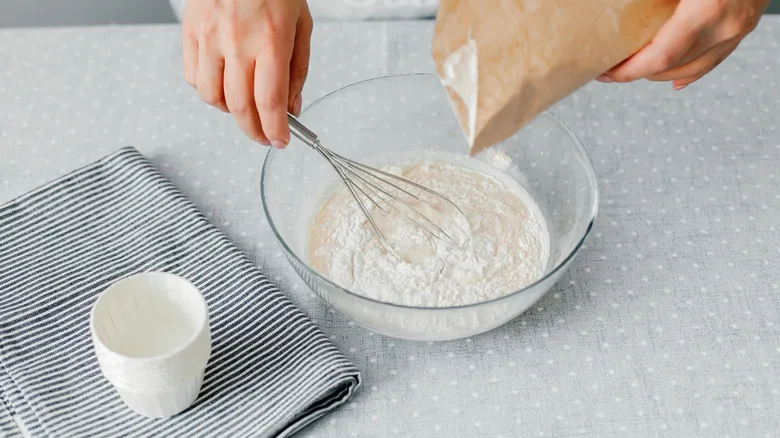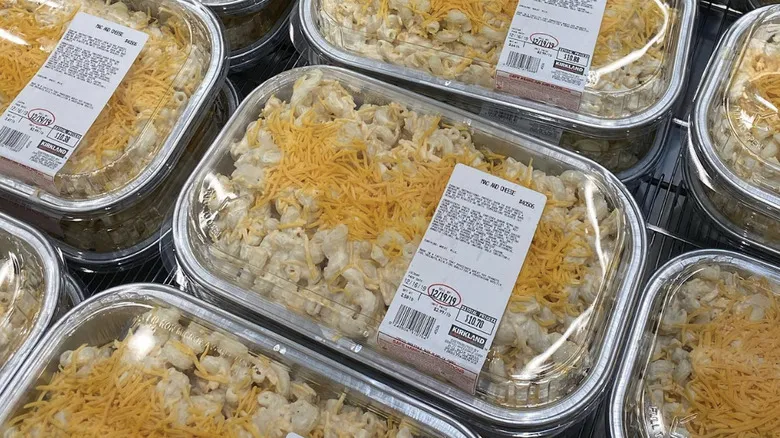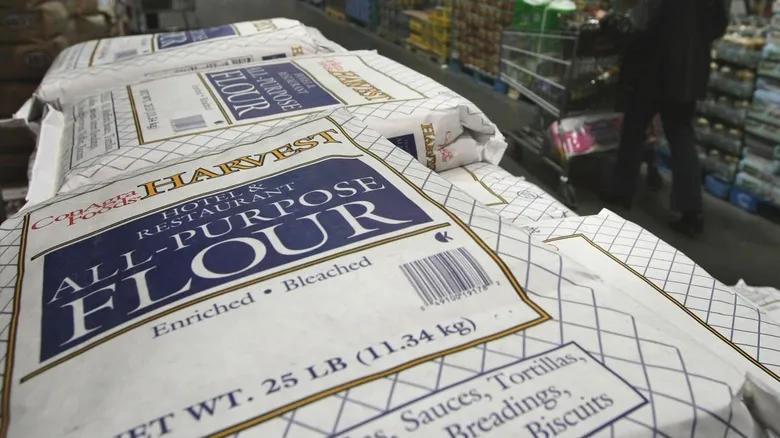Flour doesn't stay fresh forever

Even if you consider yourself a master of sourdough or a pastry expert, if you don't plan to bake bread for the entire neighborhood regularly, it's wise to avoid buying flour in large quantities. Once milled, standard all-purpose flour can last for at least a year if stored properly in an airtight container kept in a cool, dry, and dark place. You can extend its shelf life even further by refrigerating or freezing it, but once flour has expired, it’s best not to use it for baking.
Flour that has gone bad may develop a distinct rancid smell, indicating that the fats have oxidized. It can also become moldy if it absorbs moisture from the air. You can recognize moldy flour by changes in texture, such as the presence of large, visible clumps. Additionally, like other perishable ingredients, flour can attract insects if left unattended. If you notice any signs of pests, discard the flour immediately to prevent any bugs from making their way into your baked goods.
What happens if you use old flour

If you've already explored the extensive aisles of grocery options at Costco and stocked up on essential baking ingredients, you might find yourself in a bit of a predicament if your large bag of all-purpose flour expires before you use it all. As long as it doesn't show any obvious signs of spoilage, you may still be able to use it beyond its best-by date. However, flour can be quite temperamental. Older flour may not perform as effectively as fresh flour and can impact your baked goods in unpredictable ways. That's why it's advisable to purchase just a small bag or two that you can use up before it goes bad.
Stale flour can develop an off-putting flavor that will affect the taste of your breads. Additionally, the proteins in flour can deteriorate over time when exposed to air, which can impede gluten development. This may result in overly crumbly pastries or heavy, dense dough that lacks elasticity. The outcome can be reminiscent of what happens when bread dough is accidentally over-kneaded. Using spoiled flour in your batter can lead to cakes and breads that are sunken and fail to rise properly.
Recommended

Costco's New Sandwich Brings An Italian Twist To Ready-To-Eat Meals

Costco Gets Into The Holiday Spirit Early With A New Wine Advent Calendar

Costco Recalls Kirkland Smoked Salmon Over Listeria Contamination

The Trio Of Cheeses That Make Costco's Mac And Cheese So Delicious
Next up

